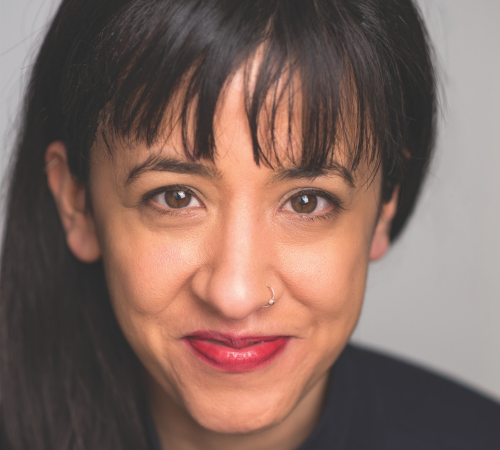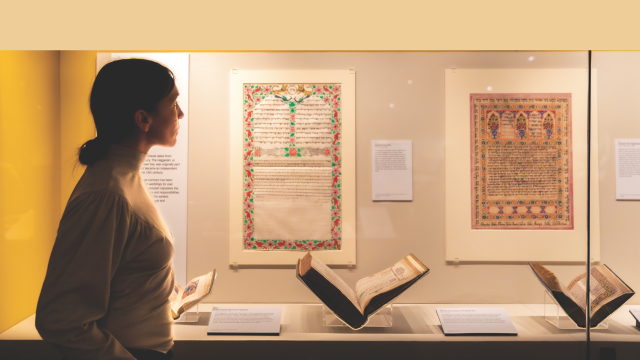-
QUALIFICATIONS
- For Linguists Worldwide
- For UK Public Services
- Preparation
- Policies & Regulation
-
MEMBERSHIP
- Join CIOL
- Membership grades
- NEW for Language Lovers
- Chartered Linguist
- Already a member?
- Professional conduct
- Business & Corporate Partners
-
ASSESSMENTS
- For Second Language Speakers
- English as a Second Language
-
EVENTS & TRAINING
- CPD, Webinars & Training
- CIOL Conference Season 2025
- Events & Networks
- CIOL Mentoring
-
NEWS & VOICES
- News & Voices
- CIOL eNews
- CIOL Awards
- The Linguist
- Jobs & Ads
-
RESOURCES
- For Translators & Interpreters
- For Universities & Students
- Standards & Norms
- CIOL & AI
- All Party Parliamentary Group
- In the UK
- UK Public Services
- Find-a-Linguist
Anam Zafar meets Ayesha Manazir Siddiqi

With her debut novel investigating the darker side of translation, the author discusses everything from positive changes in publishing to complicated relationships with language in diaspora communities
Could you tell us where you grew up and how your interest in languages began?
I was born in Oman and have vague memories of learning Arabic as a toddler. At around 7, I moved to Pakistan, and aged 18, I came to England. Growing up in a multilingual context may have inspired my interest in languages. But it’s also something else – something akin to the fascination the protagonist of my first book feels. There is the excitement of it; the feeling that learning a new language can feel like solving a puzzle, and the act of translation can be engrossing, simultaneously mathematical and intuitive and creative. I speak Urdu/Hindi, English and some French, but I’ve also studied Arabic, German and briefly Farsi, and loved each one.
What about your journey to becoming a writer and translator?
After university, I worked for Saqi Books via a wonderful Arts Council scheme around diversity in publishing. Then I worked for literature festivals and wrote poetry, essays, short stories and plays. During lockdown, I had the time for a larger project, and wrote my first novel, The Centre. I was also working for the Trojan Horse Affair podcast, and watching those masterful storytellers construct each episode was beneficial to my own writing.
I don’t consider myself a translator, but I enjoy it. It started with wanting to hold on to and improve my Urdu, and I did this by reading novels and poetry. My first translations were of stories written by family members, and then I did a couple of works for publication.
What is The Centre about?
The book is about a Pakistani translator in London, Anisa, who comes across a mysterious language school called the Centre, which promises fluency in any language in just 10 days, but at a secret and sinister cost. It explores sexuality, appropriation, race, class and the politics of language learning. I tried to write in an intimate style, as if I were in conversation with, say, my best friend, or my sister, or my mother, and people seem to pick up on this. One reader said it was, at its heart, a story about racial capitalism, which I liked. It’s both funny and dark, and also, on a another level, a straightforward thriller.
Why did you decide to intersperse Urdu words and phrases through the novel?
I didn’t really decide in that way; it just felt like the right voice. This is, after all, how I operate in my own life, and Anisa, who has a similar trajectory, would also be interacting with her intimate ones in a mix of English and Urdu. I was able to maintain this style because the publishing industry has, I think, made some progress – for instance, we no longer have to italicise words that are not in English, nor must we have glossaries. Not having to translate everything meant a lot to me and spoke to the themes of the book. I think this helps in not pandering to a white gaze, and therefore allowed me to speak from a deeper place.
So how has publishing changed?
I don’t know if this is naive or overly optimistic, but I feel like things have improved, and that there is more space now to tell stories from non-dominant perspectives. But also, the pandering to the white gaze comes from both within and without, so it’s something I try to consciously dismantle within myself. And the book also examines this. For example, it interrogates Anisa’s desire to translate ‘great works of literature’. What is ‘great literature’? Who decides? More and more, we are asking these questions.
The characters have different attitudes towards language. For example, Anisa translates Bollywood films into English but feels like she’s not a real translator. What causes her sense of inferiority?
One of the things the book examines is linguistic hierarchies; how some languages are considered superior to others. When Anisa first goes to the Centre, she learns German, feeling that it is a ‘real translator’s’ language. We also see this societal value judgement when Adam goes to Pakistan and speaks Urdu fluently. Suddenly, red carpets are rolled out for him, as if it’s such an honour that this white man would lower himself to learn this language of ours. It’s an internally absorbed notion which we ourselves may carry; ideas of shame or inferiority around the languages spoken in our homes that are not English.
In Pakistan, the relationship between language and class is stark, English being the language of the elites, and English with an English accent being especially valued. Perhaps these are the things informing some of Anisa’s discontent, her idea that books are superior to films and that ‘great literature’ is what she should be aiming for. When she learns Russian, she looks forward to reading Tolstoy and Chekhov – the people they call ‘the greats’. What is it that makes them so great, she wonders. Could it be something in the language itself? These are some of the ideas we internalise around language and literature that felt exciting to interrogate.
When Adam reveals his Urdu abilities, Anisa is annoyed and frustrated that he’s almost better than her, but when she learns German, she doesn’t apply that critique to herself. Why?
I suppose it is different for a white guy to learn Urdu than for a Pakistani woman to learn, say, English. It’s a different context and has to do with prevalent power structures. At the same time, Anisa is frequently oblivious to her own contradictions, and this especially comes out with Adam. For instance, she often appears unaware of her class privilege.
I can’t be the only reader who came to the realisation, through reading The Centre, that I have internalised other languages’ superiority to my own. But which is my language? English? Urdu? Is it about the level of fluency or one’s family connection to a language?
Some readers miss that subtext and see the book purely as a thriller. I don’t mind this as it hopefully means it’s not pretentious or didactic, but it’s lovely when questions like this come up. And for multilingual or diasporic people, they often do. How can they not? We have complex relationships to what we may call our mother tongues, which may even be languages our parents are fluent in that we barely speak.
With these languages, we may have relationships of longing and nostalgia, but also shame and sadness. As you said, languages can connect us to our past. The severing of South Asian people from their languages has often been intentional and connected to a brutal colonial project. But I believe in healing and transformation, and in the idea that things long lost can be recovered and repaired.
Your work has been translated into Spanish and Russian. How do you feel about these translations?
The Spanish translation of The Centre was interesting because they did in fact use footnotes. In the first scene, when Anisa is cooking karela stir fry, a note says something like “karela is a type of bitter South Asian vegetable”. I felt this was unnecessary, but I also gained an understanding that the politics of publishing is different in different spaces. I tried to tell them but they kept the footnotes, and that’s ok. There’s only so much you can control, and I love my Spanish publishers.
Could you tell us about your essay ‘Preserving the Tender Things’ in Violent Phenomena: 21 essays on translation?
I wrote that piece immediately after writing The Centre, and it felt wonderful to be able to explore some of the ideas around language and translation in a more theoretical, somewhat academic way. The anthology is about translation and decolonisation, and the essay explores some of the things we’ve been talking about: the erasure and suppression of marginalised languages; the importance of considering wider issues around linguistic power structures; the translations that those of marginalised backgrounds are sometimes required to do even when they don’t want to, and how, in that context, not translating can be an act of resistance. And it is also a personal essay, about my own life, my journey around languages, literature and translation.
What’s next for you?
I’ve just finished an early draft of my new book, Good Benny. On the surface, it appears to not be about translation but in some senses it is – for one thing, it’s about the languages spoken by animals and by human beings, and communication across these lines. I also recently lost my father to cancer, and the book is about cancer too – and that world, the world of illness, is a strange and disconcerting one, with a language of its own.
Anam Zafar MCIL is an award-winning translator from Arabic and French to English. As well as translating literary works, her translation specialisms are environment, international development and tourism. She is a member of The Linguist Editorial Board.
This article is reproduced from the Autumn 2024 issue of The Linguist. Download the full edition here.
Filter by category
More
The Chartered Institute of Linguists (CIOL), Incorporated by Royal Charter, Registered in England and Wales Number RC 000808 and the IoL Educational Trust (IoLET), trading as CIOL Qualifications, Company limited by Guarantee, Registered in England and Wales Number 04297497 and Registered Charity Number 1090263. CIOL is a not-for-profit organisation.








